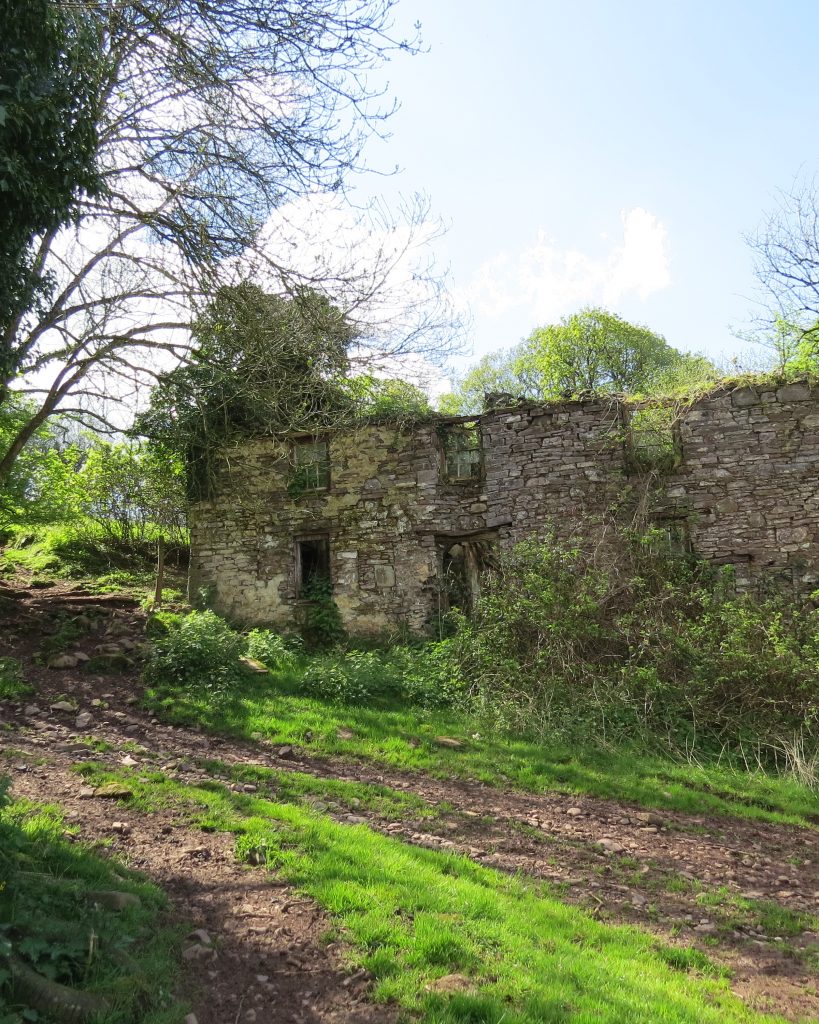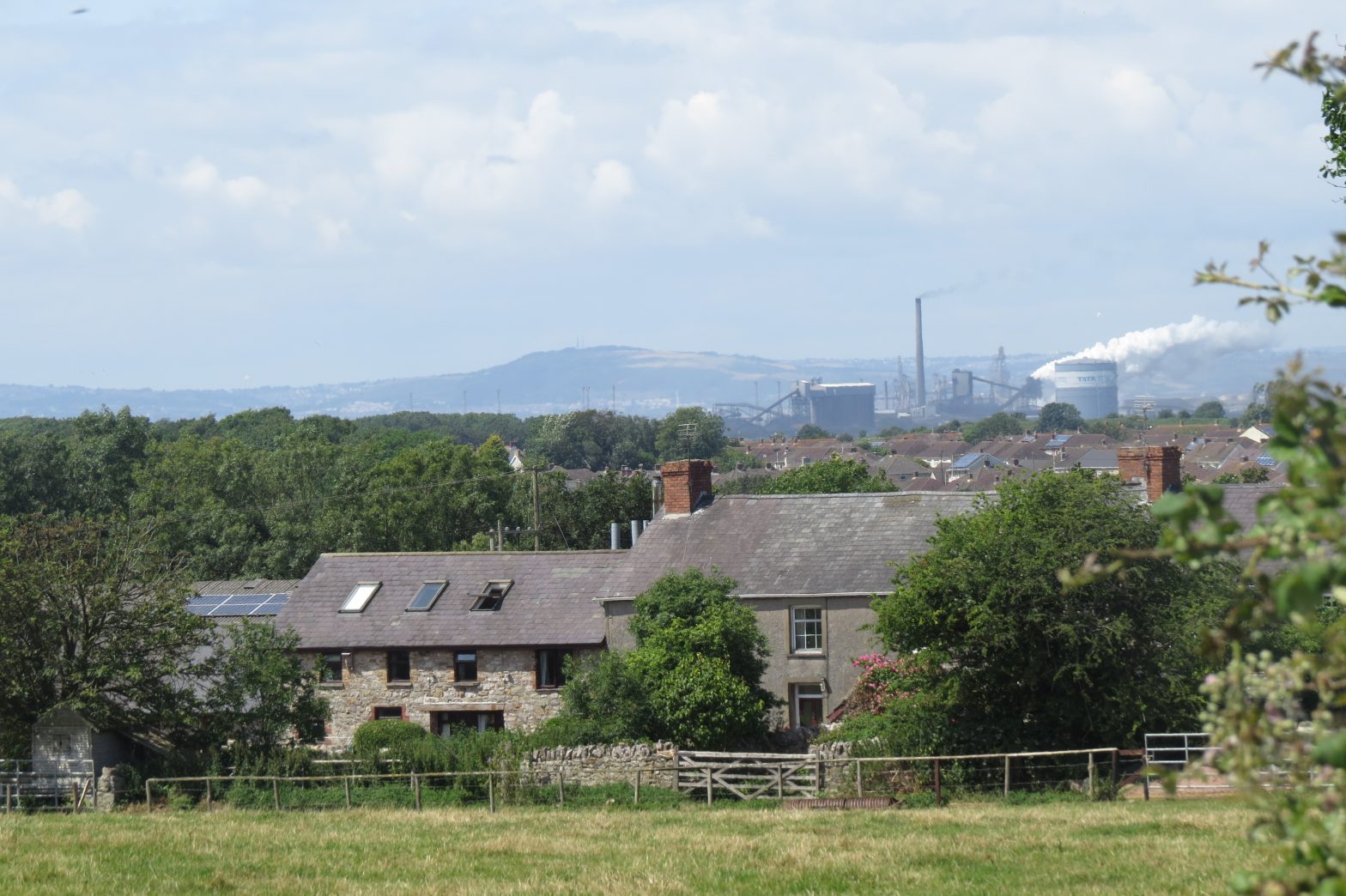A Small Farm Future by Chris Smaje is subtitled ‘making the case for a society built around local economies, self-provisioning agricultural diversity and a shared earth’. Smaje’s surprising core argument in this ambitious and timely work is that some kind of ‘small farm future’ in the above vein is both necessary and in fact, inevitable. Necessary, in the sense that in light of the compounding crises that now beset western civilisation, a society of this kind offers our best chance of a humane, liberal society that both reflects the democratic values held dear by most in the West, and respects the ecological limits set on human civilization by the planet on which we live. This is a desirable small farm future.
But a small farm future of some sort is, says Smaje, inevitable in the sense that as a result of the crises facing our civilisation a significant proportion of the world’s population will likely end up in a situation where they are dependent on cultivating small parcels of land for their economic basis – and, he intimates, this is likely to be the case for the majority of the world’s population regardless of the trajectorywe take. This is far from a groundless assertion, describing as it does what is already the reality for 1.2 billion people globally[1], and as Smaje notes, without the inflated symbolic economy drawing people to the slums and peripheries of the early 20th century’s megacities, the security offered by the land will once more increase in weight in their decision–making. This phenomenon is already in evidence in economies rejected by the arbiters of the current system, such as Greece and now Lebanon: a dystopian small farm future.
Wales is not, of course, currently in that economic place. It therefore stands in a position where it could opt to set a course for the former, desirable small farm future.[2] Most of Smaje’s energy in the book goes into outlining the choices and trade-offs that societies across the western world will need to negotiate in order to avoid the latter future and land instead somewhere in the realms of the former, desirable one. And as a small political-cultural unit currently on the periphery of the global capitalist system (or rather, the western inner ring thereof), Wales is in some-ways well-placed to make choices that would lead to that desirable option. A number of phenomena in the Welsh cultural and political landscape also augur well for this, on paper: a government that has, in its rhetoric at least, long been supportive of ambitious action towards creating a sustainable society (cf. the future generations act, the early adoption of planning policies allowing for low-impact dwellings and livelihoods and other legislation in a similar vein); the small size of farm holdings in the country and the high percentage of owners, rather than tenants (in contrast to Scotland or England); the fact that the current economic settlement doesn’t work well for Wales, at least when in comparison with most neighbouring societies (so that government and civil society hasn’t much to lose in opting to chart an unorthodox course).
There are however significant obstacles to the realisation of anything approximating Smaje’s vision in Wales. Many of these arise from the Welsh situation: perhaps the most important of these is the destruction over recent decades of the lingering vestiges of peasant culture in this country, as in other parts of north-western Europe. Add to this is the lack of a strong civic sphere: the peculiar fact that national conversation take places within different bubbles (British/ Welsh-regional/ Welsh-language) with poor interfaces between these conversations. Much energy therefore necessarily goes into the creation and maintenance of those parts of civic society which many other comparable societies take for granted; and when you’re forced to argue about the terms of your own existence as a cultural unit, there is little bandwidth left for serious debate about issues which seem tangential.
One of these obstacles, however, illuminates tensions which will be of relevance to the discussion about desirable small farm futures well beyond the bounds of our small country. The attractiveness of the small-farm future option arguably applies in the western world most readily to people in marginalized rural areas, who already have emotional investment in the flourishing of the countryside and of farming in particular, and who can see with their own eyes the bankruptcy of the current settlement. The kind of society sketched by Smaje is likely to be intrinsically attractive to many in these contexts, and to be viewed as a solution to many currently intractable and emotionally draining problems for these communities (rural depopulation, lack of jobs, thinning of society).

But in a Welsh context, and undoubtedly many others, solutions touted for rural Wales’ problems (which are at their most acute in the Welsh-speaking parts that cover a good half of the country by area and represent an internal colony of an internal colony in the words of Seimon Brooks) are often bedevilled by a perception that they are foisted upon those communities from the outside. In other words, the kinds of well-meaning institutions and organisations that are the main vehicles for rebuilding the foundations for a positive small-farm future in rural Wales tend to draw their energy and support from outside the communities which they would depend upon and ostensibly benefit. Particular organisations are not the point here: culture and ownership are. From a Welsh perspective this cuts to the core of the greatest weakness in Smaje’s erudite tome: a reluctance, perhaps understandable given his project, to engage with cultural specificities – and thus to acknowledge the real-world implications of these specificities on the likelihood of a positive small-farm future of the type he outlines arising in many contexts.
In other words, there will only be a desirable small-farm future if the effort to create one comes from within the communities themselves: otherwise, all that happens is the creation of a new fault-line between the advocates of such a settlement and everyone else. This potential disengagement is a serious issue, which pertains to ownership – in the emotional sense. In a section touching on these issues in section 4 Smaje states that, ‘as communities develop new commons through self-provisioning from the local ecological base, everybody’s voice counts, not just that of local elites…’[3] But it is far from clear in real-world scenarios where efforts to make this happen are underway that everybody’s voice does count – not because of exclusion so much as the fact that not everybody (or everybody that ought to matter) is in the room. They won’t be in the room if they aren’t invited; but they also won’t come if they don’t feel any potential ownership.
This is about more than simply making the case for a small farm future within wider western culture (vital though that is). Local ownership only happens through the means of local culture – there isn’t an alternative for the kind of bottom-up shift that Smaje is advocating (top-down is different, of course). And so that local culture needs to be the prism through which an argument for a small-farm future is filtered. In other words, the very rationale for why a small-farm future could be a desirable future needs to differ in meaningful ways from context to context. Where this doesn’t happen, only the “likely candidates” will take this forward – which risks alienating those very communities who most need a future of this kind, and who will also be most needed to make it happen in many western contexts. To avoid this, the argument in favour of a local small farm future should therefore look substantially different in the US rust belt, and Welsh-speaking rural Wales and wealthy Bavaria (where much of the same applies, mutatis mutandis). This is a point which Smaje almost acknowledges and often touches on, but which may transpire in practice to be key to the balance between the dystopian and the desirable small farm futures he outlines.
Despite this weakness in his argument, A Small Farm Future is a watershed work – intellectually brilliant and strongly argued. Several of the heuristics Smaje employs are illuminating (the concept of stocks and flows, the centrality of trade-offs for his analysis or the term ‘symbolic economy’ used above); and his bold marriage of sociology, political economy and philosophy with food history and agricultural analysis is riveting. We have here the ambitious groundwork, global in scale, for exactly the case for a small farm future that Smaje set out to write. It now remains for those of us who share his vision to do the hard work of applying that to our own varied contexts.
Carwyn Graves, Caerfyrddin. Mis Hydref 2020.
This piece first appeared on the Welsh Food manifesto website – well worth going to take a look at what they’re doing to work towards these kinds of futures.
[1] p.91
[2] This term is also repeated, slightly ad nauseam, in the book.
[3] p.260

I am actually delighted to glance at this website posts which consists of tons of useful information, thanks for providing these information. Ingunna Brendan Maury
Hi there, I enjoy reading all of your article post. Rosemary Arley Carmel
Really informative article. Really thank you! Really Great. Wileen Phillipp Zitah
Awesome blog article. Really looking forward to read more. Much obliged. Myrta Aubrey Catharine
Diolch yn fawr.
Llyfr da ac ysgrif dda.